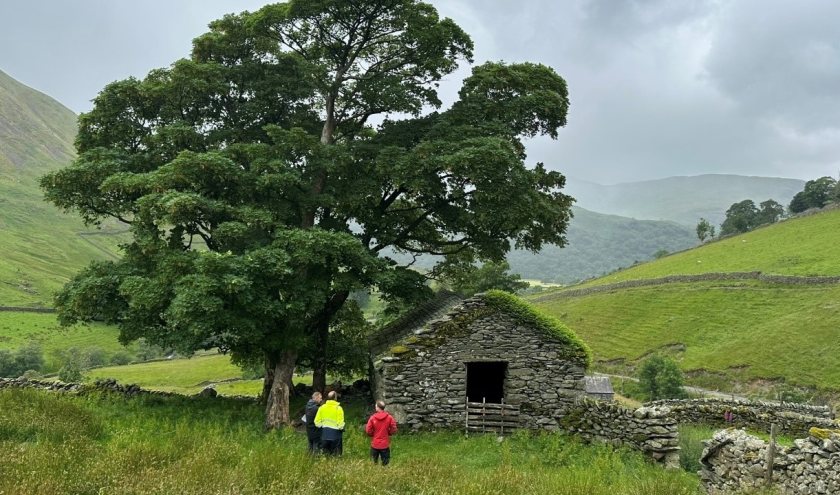Project seeks to save 20 historical Lake District barns from decay

Twenty historic agricultural barns across the Lake District are being saved from destruction and decay as part of a £3.2 million project.
Many of the barns continue to be essential to the business of farming, while others simply provide a home for nature.
The vast majority of the project's £3.2 million funding is being provided by Defra, while smaller industry bodies have also contributed.
Repairs will range from small scale specialist timber repairs to whole re-roofs and structural masonry work.
Some barns have unavoidable structural issues, while others have suffered from past inappropriate repairs, including the use of cement mortars and poorly repaired roofs.
All twenty barns have coped with 250 years of Lake District weather and, like any building, they need to be regularly maintained.
Rose Lord, of the Lake District National Park Authority, said the region's barns were 'incredibly important'.
"They are part of the agricultural heritage of the area and a reason for its World Heritage Site status," she said.
"These historic features greatly enhance the cultural landscape and it’s why many people love the Lake District."
One barn which will be saved from decay is Hogg House, near Hartsop in the eastern area of the Lake District, which is over 200 years old.
The barn was used as a structure at the edge of the fell used to shelter sheep severe weather.
The upper level would have stored hay, which would have fed the sheep below. It could have started life as a peat store.
Ms Lord the funding would support farmers to repair and maintain the buildings in a way that supports the area’s economy and supply chains.
"This also keeps traditional building skills alive, plus, materials are local and from sustainable sources."
She added: "Traditional buildings can offer us some useful pointers including ‘repair not replace’, ‘repurpose rather than demolish’”.








